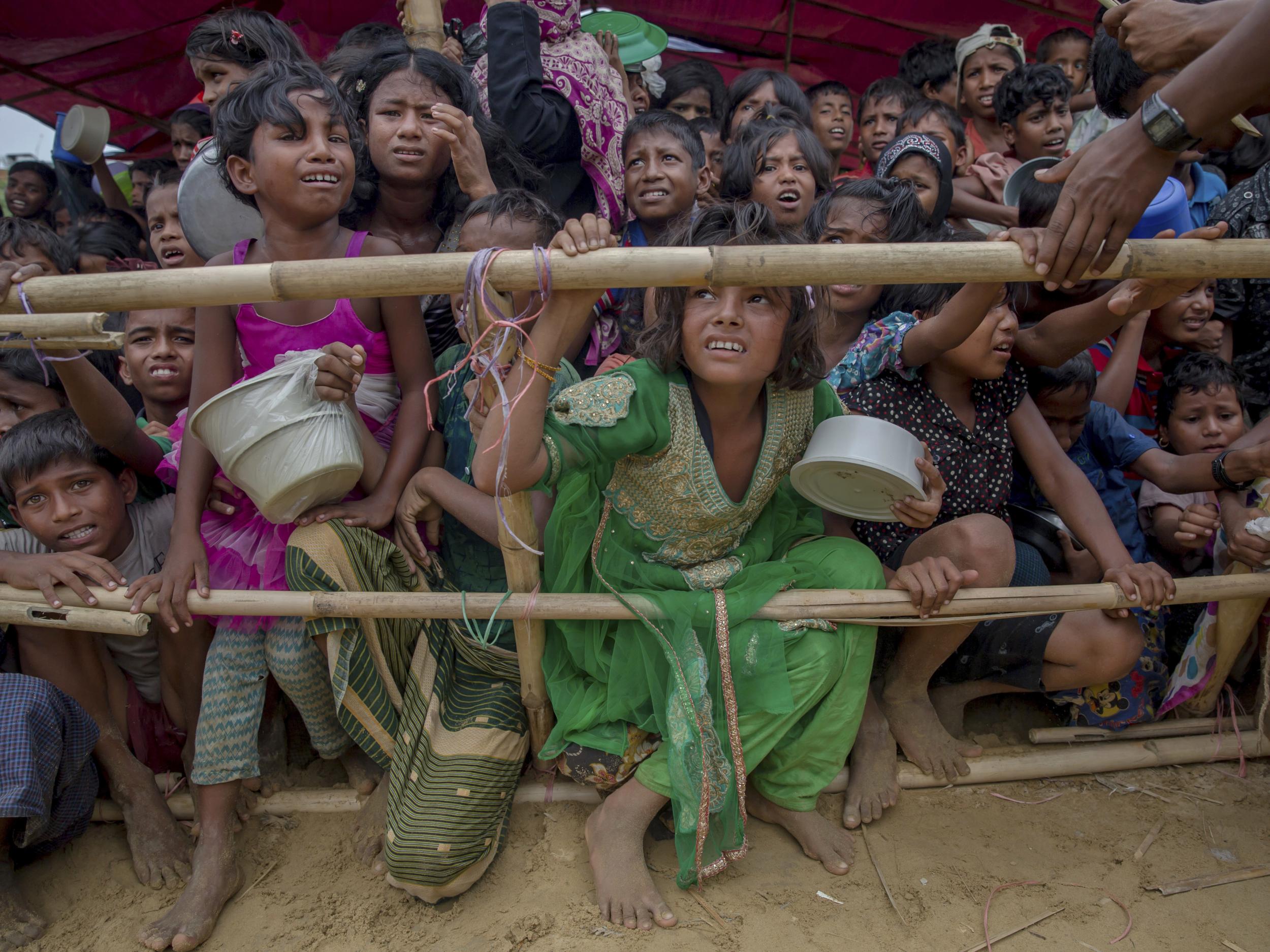The hellish situation of the Rohingya in Bangladesh is like nothing on earth. Aung San Suu Kyi should be ashamed
These are people who have literally seen their children thrown on fires. Meanwhile, Aung San Suu Kyi wouldn't even let our representatives into her country. What sort of freedom fighting is that?


They have escaped genocide but now they face being swept away by floods – for the tens of thousands of Rohingya refugees, life is heartbreakingly cheap.
And even if they survive the monsoons and cyclones, women, whose husbands have already been slaughtered, will be preparing to give birth to children conceived by the rape of the Burmese military.
The plight of the Rohingya is like nothing on Earth.
They are a people who have been dehumanised – they have seen their children literally thrown on to fires.
Already traumatised by having to flee Burma, or Myanmar as it is known now, into neighbouring Bangladesh, their desperate existence is set to become even more atrocious as annual rains hit their makeshift camps.
The ground on which their rickety structures have been erected is prone to landslides. So, even if their makeshift homes remain standing, poorly built latrines are bound to be washed away, meaning the inevitable spread of disease.
As a member of the House of Commons International Development Committee, I visited a refugee camp in Bangladesh and was shattered by what I saw.
It is estimated that, since August last year, more than 700,000 Rohingya Muslims have fled to Bangladesh to escape a military crackdown in neighbouring Myanmar.
The refugees arrived in Bangladesh with very few possessions, having spent most of their savings on transportation, and their shelters consist of little more than bamboo and thin plastic.
Traumatised by having seen friends and family killed in torched villages, they are entirely reliant on humanitarian agencies for food and basic needs but, of course, the strain on those trying to help them is enormous.
Meanwhile, the land at Cox’s Bazaar, which was originally forest and has been cut down to accommodate the refugees, is unstable and prone to landslides when the heavy rains fall.
The truth is that Bangladesh is trying its very best to handle the crisis but being a poor country means that it simply does not have the infrastructure to cope.
Bangladeshi disaster management officials are working with the United Nations to relocate 133,000 people living in areas at the highest risk of flooding and is also launching a Rohingya language radio station that will act as a natural disaster warning system when the storms come.
But, despite its best efforts, Bangladesh is struggling to handle the enormous numbers of refugees that have flocked over its borders.
In addition, Bangladesh is at the mercy of extreme climatic events that have claimed millions of lives over recent decades and destroyed past development.
A severe cyclone strikes the country every three years, on average, and although Bangladesh has invested heavily to improve its disaster readiness and response, with the UK and other development partners’ support, the impacts of global warming and climate change still have the potential to challenge the country’s development efforts, human security and the future.
Aid agencies are doing their best to dig what drainage channels they can and to shore up at least some structures in the camps – but they are running out of time.
The scale of the problem facing Bangladesh and the Rohingya is mind-boggling but so is the attitude of Myanmar, which has washed its hands of its own people.
Aung San Suu Kyi, held up as one of the greatest fighters for democracy in recent decades, would not even allow our committee representatives to visit her country.
That’s right – the woman who has spoken out so passionately for democracy and humanitarianism in her fight against Myanmar’s military in the past is either kowtowing to them, looking away from the ethnic cleansing of the Rohingya in Rakhine State, or has taken a deliberate stance of refusing to help.
The crisis needs a positive reaction from Myanmar and the international community so that the Rohingya can return to their homeland as full and equal citizens.
If immediate action is not taken, tens of thousands more Rohingya will certainly die.
Pauline Latham is MP for Mid Derbyshire and serves on the House of Commons International Development Committee.
Join our commenting forum
Join thought-provoking conversations, follow other Independent readers and see their replies
Comments
Bookmark popover
Removed from bookmarks